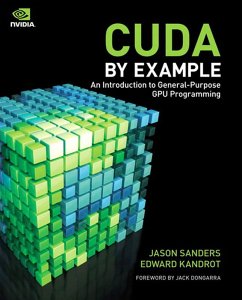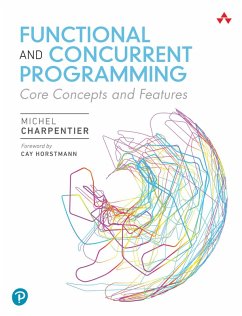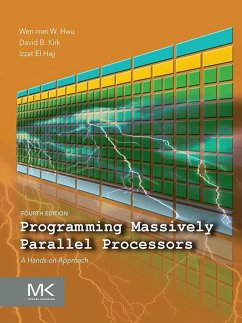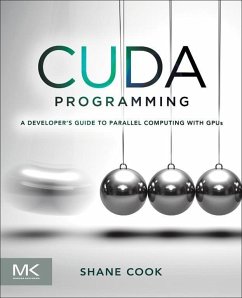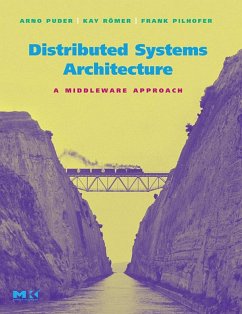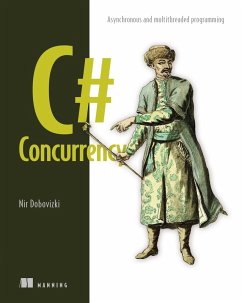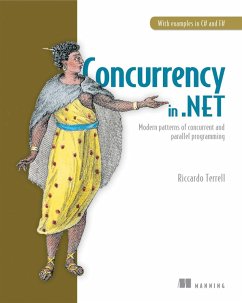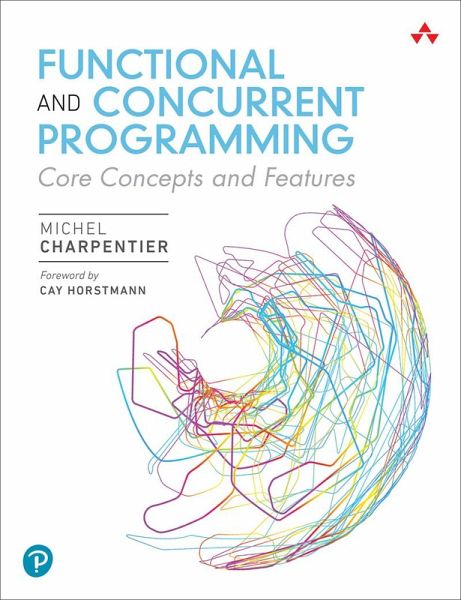
Functional and Concurrent Programming (eBook, ePUB)
Core Concepts and Features
Versandkostenfrei!
Sofort per Download lieferbar
33,95 €
inkl. MwSt.
Weitere Ausgaben:

PAYBACK Punkte
17 °P sammeln!
Leverage Modern Language Constructs to Write High-Quality Code Faster The functional and concurrent programming language features supported by modern languages can be challenging, even for experienced developers. These features may appear intimidating to OOP programmers because of a misunderstanding of how they work. Programmers first need to become familiar with the abstract concepts that underlie these powerful features. In Functional and Concurrent Programming, Michel Charpentier introduces a core set of programming language constructs that will help you be productive in a variety of progra...
Leverage Modern Language Constructs to Write High-Quality Code Faster The functional and concurrent programming language features supported by modern languages can be challenging, even for experienced developers. These features may appear intimidating to OOP programmers because of a misunderstanding of how they work. Programmers first need to become familiar with the abstract concepts that underlie these powerful features. In Functional and Concurrent Programming, Michel Charpentier introduces a core set of programming language constructs that will help you be productive in a variety of programming languages-now and in the future. Charpentier illustrates key concepts with numerous small, focused code examples, written in Scala, and with case studies that provide a thorough grounding in functional and concurrent programming skills. These skills will carry from language to language-including the most recent incarnations of Java. Using these features will enable developers and programmers to write high-quality code that is easier to understand, debug, optimize, and evolve. Key topics covered include:
As a bonus, the book includes a discussion of common typing strategies used in modern programming languages, including type inference, subtyping, polymorphism, type classes, type bounds, and type variance. Most of the code examples are in Scala, which includes many of the standard features of functional and concurrent programming; however, no prior knowledge of Scala is assumed. You should be familiar with concepts such as classes, methods, objects, types, variables, loops, and conditionals and have enough programming experience to not be distracted by simple matters of syntax.
- Recursion and tail recursion
- Pattern matching and algebraic datatypes
- Persistent structures and immutability
- Higher-order functions and lambda expressions
- Lazy evaluation and streams
- Threads and thread pools
- Atomicity and locking
- Synchronization and thread-safe objects
- Lock-free, non-blocking patterns
- Futures, promises, and functional-concurrent programming
As a bonus, the book includes a discussion of common typing strategies used in modern programming languages, including type inference, subtyping, polymorphism, type classes, type bounds, and type variance. Most of the code examples are in Scala, which includes many of the standard features of functional and concurrent programming; however, no prior knowledge of Scala is assumed. You should be familiar with concepts such as classes, methods, objects, types, variables, loops, and conditionals and have enough programming experience to not be distracted by simple matters of syntax.
Dieser Download kann aus rechtlichen Gründen nur mit Rechnungsadresse in A, B, BG, CY, CZ, D, DK, EW, E, FIN, F, GR, HR, H, IRL, I, LT, L, LR, M, NL, PL, P, R, S, SLO, SK ausgeliefert werden.




